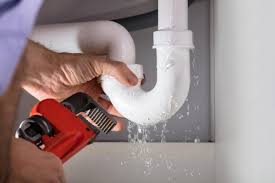How to Budget for Plumbing Repairs
2023.10.19
Plumbing issues can strike any time, and when they do, they often require immediate attention to prevent further damage to your home. From leaky faucets to burst pipes, plumbing repairs are inevitable in homeownership. However, these repairs can sometimes come with a hefty price tag, making it essential to budget for plumbing repairs proactively. In this guide are the steps to help you create a budget and ensure you're financially prepared when these unforeseen problems arise.

Assess Your Current Plumbing Situation
Before creating a budget, closely examine your home's plumbing system. Inspect faucets, toilets, pipes, and other fixtures for signs of wear and tear. Check for leaks, drips, and other visible issues. This initial assessment will give you an idea of the potential repairs needed.
Set Up an Emergency Plumbing Fund
One of the most effective ways to budget for plumbing repairs is to establish an emergency fund. Over time, this fund will grow and provide you with a financial cushion for unexpected work.
Prioritize Preventative Maintenance
Preventative maintenance can help you avoid costly plumbing issues in the first place. Regularly schedule inspections and care for your plumbing systems, such as drain cleaning and pipe inspections. While preventative maintenance may have upfront costs, it's usually more affordable than dealing with major plumbing problems down the line. When faced with plumbing issues in your home, it's essential to search for a reputable plumber Columbus OH, to ensure experienced professionals handle your repairs.
Get Multiple Quotes
Getting multiple quotes from reputable plumbers is essential when you require plumbing repairs. This step ensures you're not overpaying for services and can choose the most cost-effective option. Don't simply opt for the lowest quote, though. Consider the plumber's reputation, experience, and customer reviews.
Plan for Unforeseen Repairs
Plumbing problems can sometimes be more severe and expensive than initially anticipated. Be prepared for the unexpected by allocating a portion of your monthly budget to cover unforeseen plumbing expenses. This safety net will prevent you from dipping into your emergency fund or going into debt when major plumbing issues arise.
Learn Basic DIY Plumbing
While not all plumbing repairs can be handled by homeowners, knowing some basic plumbing skills can help you tackle minor issues yourself. Learning to fix a leaky faucet or a running toilet can save you money on service calls. Just be sure not to take on projects beyond your skill level, as DIY mistakes can lead to more significant problems and increased costs.
Invest in Quality Fixtures
Invest in quality products less likely to require frequent repairs when replacing plumbing fixtures. While high-quality fixtures may have a higher upfront cost, they can save you money in the long run by reducing the need for constant maintenance or replacements.
Keep Records of Past Repairs
Maintain a detailed record of all past plumbing repairs and maintenance. This information can help you identify recurring issues, assess the effectiveness of preventative measures, and predict future repair needs. It also helps when obtaining quotes from plumbers, as they can better evaluate your plumbing history.
Budgeting for plumbing repairs is a crucial aspect of responsible homeownership. By proactively setting aside funds, investing in preventative maintenance, and being prepared for unexpected expenses, you can ensure that your plumbing system remains in good working order while avoiding financial surprises. Remember, it's always better to be prepared for plumbing issues than to be caught off guard by an unexpected, costly repair.
More Articles
Copyright © Fooyoh.com All rights reserved.